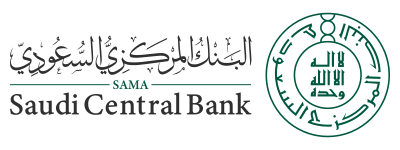
Terms of customer services
The policy of Awda Al-Harbi Exchange Company is to adhere to all the rules and regulations set by the Saudi Arabian Monetary Authority (SAMA), especially those related to combating money laundering, terrorism financing, and associated regulations. These form the basis for Awda Al-Harbi Exchange Company's policies in this regard. The Saudi Arabian Monetary Authority has issued these rules with the aim of supporting its efforts to combat money laundering, terrorism financing, and other financial criminal activities. The primary objectives of these rules include:
1. Ensuring the compliance of banks and exchange companies operating in the Kingdom of Saudi Arabia with the Saudi Arabia Anti-Money Laundering Law and its executive regulations.
2. Assisting banks and exchange companies in the Kingdom of Saudi Arabia in complying with the banking control system, anti-money laundering regulations, and instructions issued by the Saudi Arabian Monetary Authority, as well as all relevant United Nations Security Council resolutions.
3. Implementing policies, standards, procedures, and systems to prevent, detect, and report money laundering and terrorism financing activities in accordance with the Basel Committee principles and the Forty Recommendations and the Nine Special Recommendations of the Financial Action Task Force (FATF) on combating money laundering and terrorism financing.
4. Protecting banks and exchange companies operating in the Kingdom of Saudi Arabia from being used as channels for the transfer of illegal funds resulting from money laundering, terrorism financing, and other financial criminal activities.
5. Enhancing and protecting the integrity and reputation of the financial and banking systems in the Kingdom of Saudi Arabia and maintaining customer security.
In addition to the instructions and rules of the Saudi Arabian Monetary Authority, Awda Al-Harbi Exchange Company complies with all the recommendations issued by the Financial Action Task Force (FATF) as of February 2012 and other guidelines, which are taken into account during the annual assessment of anti-money laundering and terrorism financing activities.
Awda Al-Harbi Exchange Company has a distinct reputation for the quality of services it provides to its customers, maintaining its reputation and position by implementing Know Your Customer (KYC) policies and procedures, submitting reports related to anti-money laundering and terrorism financing to the relevant authorities, and training various functional teams to detect and track cases of money laundering and terrorism financing.
Awda Al-Harbi Exchange Company is committed to developing policies in line with international standards and best practices. Policies and procedures are reviewed regularly, and external auditors examine the anti-money laundering and terrorism financing activities and provide reports to senior management.
Money Laundering:
The Saudi Arabian Monetary Authority defines money laundering as the commission of any act or attempt to hide or disguise the true origin of funds acquired contrary to Sharia or the law, making them appear legitimate. In other words, it involves concealing or obscuring the true nature of funds and assets, their source, location, method of disposal, ownership, or related rights, knowing that these assets are the proceeds of criminal activities.
Regardless of the criminal activities that generated these assets, money launderers use various methods within the stages of deposit, layering, and integration to transform these illegitimate proceeds into legal funds or assets. This involves breaking down the funds into smaller amounts to avoid suspicion, transferring them as bank transfers, and using them to purchase real estate, stocks, luxury goods, and invest in business projects.
Terrorism Financing:
According to the Anti-Money Laundering Law, criminal activity includes any act punishable under Sharia or the law, including terrorism financing, terrorist acts, and terrorist organizations. The executive regulations describe terrorism financing as involving funds from legitimate sources.
The Kingdom of Saudi Arabia adheres to United Nations Security Council resolutions concerning anti-money laundering and terrorism financing and has enacted laws that penalize money laundering and terrorism financing. The Saudi Arabian Monetary Authority requires banks and exchange companies to comply with the recommendations and guidelines of the Financial Action Task Force (FATF) and the United Nations.
Furthermore, the recommendations of the FATF must cover individuals who directly or indirectly collect funds for the purpose of using them unlawfully in whole or in part for:
1. Carrying out terrorist acts
2. Organizing terrorism
3. Carrying out individual acts of terrorism.
